Resources

writing about teaching means that i begin with thinking about teaching and why it has always been a part of my life. both of my parents were college professors, and the worlds of books and classrooms were a part of my life for as long as i can remember. some of my earliest tangible memories about teaching are walking from my grade school—fayetteville street elementary—to the biology building at north carolina college at durham for negroes (now north carolina central university) and sitting outside of my mother’s classroom and listening to her biology lectures. she had no idea that i was there until i talked about it in my installation address at union theological seminary when I was in my late 40s. i loved listening to her teach as she was in command of the material and the classroom, and her diction was impeccable. i knew a little about some of the topics she was teaching in those intro biology classes, but not always. and it was the not-always times that caused me to lean in more closely—what i now thing of as learning. writing about teaching means that i put myself into the classroom—either an imagined or tangible one—and think about why working with students in a teaching and learning environment is an honor and can be big fun. it’s also a challenge and i find that there are times when the pain or the joy that is being shared is also a time of both spiritual and pastoral prayer. logic and reason take somewhat of a back seat for a while as the humanity of the person(s) in front of me or seated around the table comes to the fore in visceral ways. writing about teaching helps me remember why i chose it as a profession and how, although i have been in administration since 2008, i never stopped teaching in its broadest sense as being a dean is, for me, about teaching as we learn together how to be a faculty, how we shape a curriculum, how we engage the worlds around us, how we must be as present as possible to the known and the unexpected, how we work with the churches and communities around us, how we hold ourselves together by tending to our spiritual as well as physical selves. and i am reminded, once again, that teaching is about caring and love.
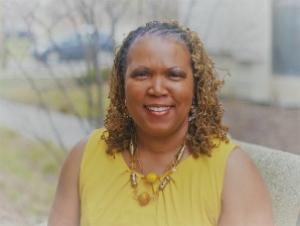
Besides screaming “Don’t do it!” or “Why in the (bleep) would you want to do that?” there are any number of tidbits people just don’t offer when it comes to moving from the classroom to administration. With any number of references to “going to the dark side” (of note: I take issue with any metaphorical use of “darkness” or “blackness” as pejorative), seldom does a professor stepping into administrative waters receive much of a verbal life jacket. After five years as Vice President of Academic Affairs/Academic Dean, I have decided to return to the classroom and “fully” dwell as a Full Professor of New Testament and Culture. After a handful of years and a pandemic, it is time. Yet, as I reflect on this transition, I want to share some tools, tidbits, and techniques that I discovered behind the dean’s desk. Perhaps these thoughts and (in some cases) lessons will prove beneficial to anyone considering an administrative role. I hope my meditations won’t deter any inclinations or cause too much fear and trepidation. Here are my ruminations: As dean there will be deluge of email. Some of the communication is important. Yes, you need to know if a professor can’t teach a class or if the registrar is out sick. You will be added to listserves simply based on your signature. Some of the notices give pause; others are quite questionable. Is it important that the dean provide input on the new hand sanitizer or toilet tissue distributer? You will need to (re)define classroom activity. The student-class engagement decreases. My first year as dean I did not teach so I could get acclimated to the shift in responsibility and learn the numerous accountability layers. As an administrator you will quickly discover that the Boardroom is now your classroom. The Leadership Team meeting is the lecture hall. Staff meetings are, yes, pedagogical sessions. There is the danger of demonizing students. The year of non-teaching was helpful in getting my sea legs under me. However, I soon began to see our wonderful students as plagiarizing pirates, hell-bent on circumventing class portals and graduation paths. Primary interactions with students were pejorative and positioned as “coming to the principal’s office.” Well, I was happy to return to teaching at least one class a term because our students deserved a better view from me. I knew they honored the institution by their enrollment. They were not the imps the “daunting dean” occasions always warranted. Yet, the nature of “go see or email the dean” was the bowl for such unfavorable engagement. On some days administrative work is purely gratifying. A letter of reference for a hardworking student or an on-the-rise staff member is food for the soul. Student award ceremonies give so much ebullience. Faculty promotions and publications are the stuff of good wine. Commencement is just filled with joy and jubilation. People don’t stay in administration long. I really didn’t know that, and yet it is very true. Administration is both arduous and awesome. However, some days I felt awful about what happened in a faculty meeting or with a staff member. Select meetings and email exchanges with students grieve me to this day. By the way, did I mention the excessive emails? Toilet tissue? Hand sanitizer? In the end: Do You! I had to learn to take care of myself, especially when the doctor told me my blood pressure was high. What the hell! There was so much I had internalized without realizing it. I thought my daily exercise regimen and morning devotion were enough. All of my efforts were off-balance and insufficient. I was taking in more than I was releasing. If the body keeps the score, my body was winning (the game of stress and anxiety) while my head and heart were losing mercilessly. I had to recall what my Granny said: “When you die, the church will roll on.” Institutions will say kind things to get you on board. Maybe a few folk will show up at your funeral, but in the end the train will keep rolling. And soon after your burial, a new dean will be sitting behind that desk or in that virtual space. At first I saw in a glass dimly, now I see clearly. You don’t have to tell me twice. Now that I know better, I owe it to myself and my sons to do better. In my five years as dean it was teaching students that really brought me back to my center. The one class a term reminded me of my vocational core. It was the mac to my cheese, the shrimp to my grits—I could go on. I dare not say I am done with administration nor that this work is not a part of my career calling. Ann Garrido’s work on the spiritual nature of administration proved quite helpful. I am finished, but not done. Nonetheless, there was—there is—something about preparing a syllabus, researching articles, planning course sessions, and inviting colleagues to share in my classroom via Zoom that gives me pedagogical pleasure. I need administrative work to stretch my manifold gifts and talents. I need to teach to get to the heart of the matter. I am grateful for these experiences and stand on the cusp of many more. May you continue to discern your teaching path and/or administrative portal.
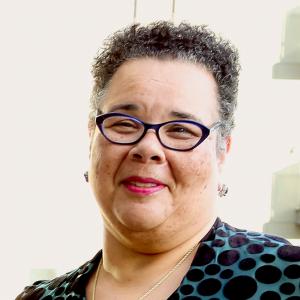
Preface It is my pleasure to co-author this blog with Dr. Roger Nam, Professor of Hebrew Bible, Candler School of Theology, Emory University. Dr. Nam and I have been a part of the Wabash Center project for over twenty years. We have had the opportunity to hear, as participants and as participant leaders, the kinds of questions and concerns early career colleagues pose over meals, while canoeing or during the late-night hours in Clifford Lounge. Invariably, issues of thriving, surviving, and knowing “what to do” as an early career person navigating the academy are at the forefront of the concerns and conversations. We understand that questions about the teaching life are just as important as questions about the craft, praxis, and art of teaching. Generative teaching requires a life that is healthy, whole, and resilient – especially in the early stages of any colleague’s career. Roger and I have recorded a series of podcast conversations which engages the questions we heard regularly posed by early career colleagues. These conversations are not meant to give advice to particular situations or specific people, nor are they intended to provide guidance for opportunities. The conversations are intended to suggest the kinds of issues, questions, and curiosities needed to frame moments of discernment, decision making, mentoring, and dreaming. Further, Roger and I are not claiming expertise in any particular situation. Our expertise is in the many conversations we have had with colleagues and the many years we have had as leaders in our own fields of endeavor. Flourishing in the Teaching Life Series Personal Finance and Planning: Roger Nam Healthy and career stability includes planning for the financial future and managing personal funds. Understanding 403B retirement accounts investments, and estate planning is part of faculty wellness. Understanding Institutional Finances: Roger Nam Learning to read institutional budgets, understand endowments, and be knowledgeable about financial reports will assist faculty persons. Being informed about your school’s financial picture is an aspect of personal wellness. Negotiating Job Offers: Roger Nam What is possible as you accept a new job? What kind of agency is needed to feel like you belong at hire? What does it mean to know your worth and value? Charting the Course of a Scholarly Career: Roger Nam Scholarly careers are not linear or tidy. Hear about helpful tools for career management like: creating a map/plan for tenure process and promotion (6 year plan), having more than one mentor, knowing when to leave the first job and when to stay, finding conversation partners for career decisions. Entrepreneurial Ambitions and Insights: Roger Nam What scholarly skills are transferrable to other enterprises? What does it mean to consider an executive position like a deanship or presidency? How do I manage speaking engagements, book deals, and other kinds of opportunities? What is an LLC and do I need one? Negotiating Once you are given a job offer, then it is time to negotiate your needs for hire. Negotiating your contract presumes you have agency concerning your career decision-making and that you have, in depth, researched the institution from which you have received an offer. Negotiating requires that you are not ambivalent about the job. You must have clarity about your needs, the needs of your family and the kinds of provisions you would need to thrive in that specific environment given the geographic location, kind of institution, and your hoped-for career trajectory. Negotiation is context specific – there is no “one size fits” every situation. Be mindful, that while we have heard of each of these items listed below having been negotiated, we have never heard of all these items in any one contract. When negotiating for a job offer, you must consider the context of the school, know your own value to the institution, and consider what you will need to thrive in that location. Your requests should not be capricious and, as in any negotiation, compromise must be part of the engagement. Salary is too often the only consideration of negotiation. Most schools have a determined entry-level salary for early career colleagues and/or the institution has established bans of salaries for the entire institution, which cannot be ignored nor changed. Many starting salaries are not negotiable. That said, even a 1% increase can accrue into a significant amount of money over 10, 20, 30 years of employment. Beyond salary negotiation, it is likely that your ability to thrive depends more on the kinds of items in the list below. Consider negotiating toward these kinds of needed aspects of the job: Title and Status Housing Short term or long term / rent reduction/ mortgage support Equipment (computers, and other technologies) Teaching resources Office location and office furnishings Funds and Funding (access to funds is typically not taxable as they are not part of salary) Moving Funds (Since 2018 moving expenses are not tax deductible except for military members). Often funding amounts are pre-set and moving funds are always considered salary and thus taxable. Consider that if you do not need to move to take the job, ask that these funds be considered a hiring bonus or accessed for some other purpose. Research Funds Travel Funds Student Loan relief Startup costs to help establish a research trajectory (e.g., library funds, index services) Eligibility for tuition remission for children Access to institutional credit card so you do not need to “front” expenses Membership to or use of school’s membership in local institutions (e.g. country club) Classroom resources Scheduling and Timing Course release Course timing and flexibility in mode of teaching Tenure Clock and Sabbatical Clock Committee Relief or Committee Assignment Delay or reduce administrative obligation (e.g., will not chair department until after tenure) Junior faculty sabbatical (leave in preparation for tenure or promotion, year 3, 4, or 5) Staff Support Research Assistant Teaching Assistant Publishing Assistance for: content editing, copying editing, indexing, footnote verification, etc. Access to administrative assistant services Hire of coach for administrative role and responsibilities Grant writing assistant Creation of a center or other institutional project of your own scholarly interest Bottom Line Negotiation depends upon your own agency. Your agency, exercised for your own wellbeing, begins when you submit your job application and continues throughout your career. Too many colleagues accept a job offer without negotiating or without having read the Faculty Handbook, the benefits package, or knowing enough about the culture of the faculty. Learning about the job begins with your preliminary research on the institution before making application, continues with posing your questions at the interviews, includes conversations with knowledgeable mentors and colleagues at other schools. By the time you are offered the position, you should have a clear sense of what is possible for the position you are considering and what you would need from that institution to thrive, flourish, and be well in your work.

Driftwood on a beach. How did it get here? From where? When? Why this beach? Why this day? And also, that it arrived, on the foam, with a bounty of neon green moss, stubbornly shining a light in the soggy sand. A beacon. Life will out. Blog originally posted in April 2018
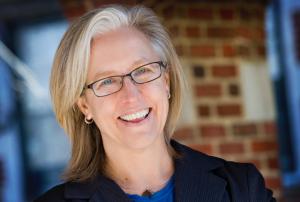
Back in the summer of 2017, these Deans of theological schools from the US and Canada set out on a journey of building a community of trust, respect, friendship, and collaboration to work on some of the most challenging issues facing theological education today. Comprising a religiously and geographically diverse group of leaders, the Wabash Deans Colloquy has embraced over its two, four-day sessions (Summer 2017 at Wabash College; and Spring 2018 on Mustang Island, TX) the signature Wabash Center for Teaching and Learning in Theology and Religion combination of rigorous collaborative peer learning with community building and play in order to navigate the boundaries that divide us religiously (Evangelical, Roman Catholic, mainline Protestant, and Christian and Muslim), and the contemporary institutional instability that often seems to foster a spirit of competition rather than collaboration among our schools. On this journey we explored the alignment of Deans' vocations with the mission of our schools, probed possibilities for ways our teaching and learning can promote the common good in our different contexts, and considered how best to equip ourselves for academic leadership in curriculum revision, assessment, and faculty and student formation in times of intense cultural and religious change. We've shared in prayer, meals, card games, deep conversation, hot putt-putt golf (like hot Yoga, but golf), dolphin watching, and collaborative writing with one another. Formed now as a collegium, our voyage continues. Just what the future holds is not certain for theological education in any of our contexts, but no matter the challenges or opportunities we face, we are thankful that one thing the future holds is the promise of traveling in such good company.
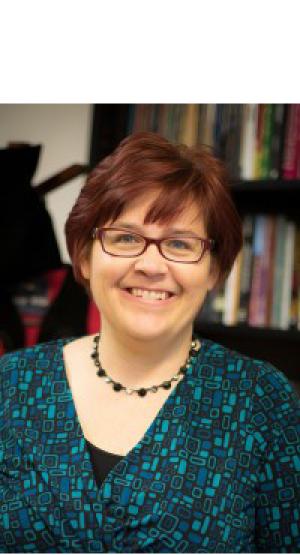
Emily Dickinson said, "Hope" is the thing with feathers - That perches in the soul - And sings the tune without the words - And never stops - at all- Yet hope is not confidence This bird--frozen in flight and in death--evokes for me both the hope Dickinson speaks of and the precarity that so many feel in these uncertain times. Many theological school deans lead in contexts where success and failure, gain and loss lie close together. The landscapes of education, church, and society have shifted radically under our feet. The future of many institutions cannot be discerned. There are greater forces at work--some benign, some destructive, all-powerful, few predictable. Attempts to fly might fail and no one, in particular, will be at fault. Paradoxically, theological educators are daily in the business of nourishing hope, of remembering, deepening, and empowering the vision of God’s radical love for humanity and creation ever-unfolding in the world. There is no shortage of need or demand for this work. And yet deans are doing a disservice to that work if an institution and its people are blind to the realities and risks before us. Cultivating collective hope means facing together the risks with creativity, candor, and courage. As Ernst Bloch has said, “hope is the opposite of naive optimism . . . It is critical and can be disappointed.” This bleak and beautiful image captures for me the work and commitment of theological education in these times--so precarious and yet soaring with possibility.
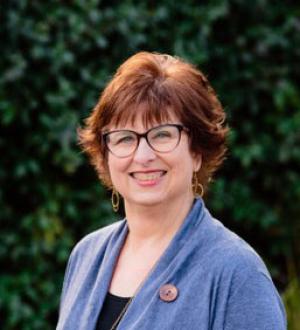
Walking the beach, I am caught by the ordered chaos of blue and white shards oriented around a large center shell. What a great image of centered-set thinking, I muse, and pull out my phone to capture the image. Isn’t a part of the deans’ job to keep pointing to the center? To guard not the boundaries but the heart? In the midst of shifting cultural forces, the changing nature of the institutional church and theological education (all our usual suspects), we are committed to a common mission, living a common life, journeying toward a common goal. But a poet reminds me that “things fall apart; the centre cannot hold.” And the words trouble me because I long for the center to hold. What I don’t see, until I bring the captured image up on my screen, is the bright luminous reflection offering me a glimpse of another reality to which the whole enterprise is oriented. And I think, yes, it is true. The deans’ job is to keep orienting toward the center and fortunately, we do not do it alone.
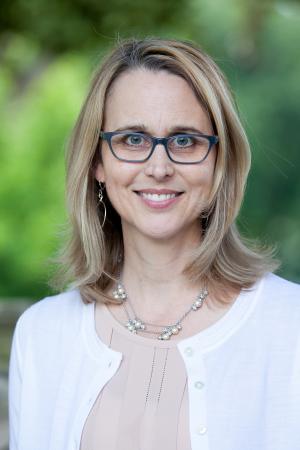
I imagine that once upon a time, a child joyfully ran along the beach in this sandal - picking up shells, building sculptures in the sand, playing in the waves. But, after a season at sea, this sandal would be difficult to walk in – it’s nearly broken in half, now the home of sea life, and no longer part of a pair. Plus, the child who wore it last summer has likely outgrown it. A new season calls for new equipment. Deans are called to help theological institutions, and the people within them, realize these same sorts of things. The shoes we’ve been wearing (perhaps our curricula, organizational structures, recruiting processes, systems of student support, and faculty cultures) don’t always serve us well in a new season. Moving beyond unneeded parts of the past – first naming and then letting go of old ways and sacred cows – can be difficult, however, and so deans also need to care well for faculty, staff, students, and ourselves amid times of significant change. It’s OK to swap out equipment, and sometimes it’s the best option. We still need shoes to get us where we are going, shoes that will provide cushion and support and protection and make the journey easier, but it’s likely time for a new pair of sandals. New equipment may take time to break in, but we can trust that it will serve us well in this new season and allow us to explore and build and play in response to the divine invitation to equip God’s people to serve as they have been called
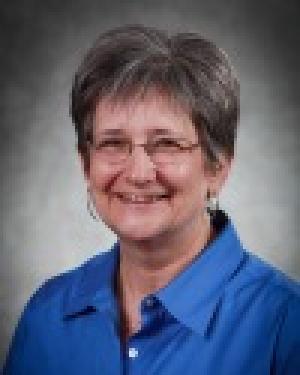
The ocean – dynamic, powerful and vast – the dean must be willing to be there; walking with and leading others into the movements of change. The dunes - stable, protective and slow – the dean must be a stable and sustaining presence, standing strong with others in the midst of storms. Or perhaps the dean must be the bridge, creating the pathway between energies of stability and change; walking purposefully back and forth between the two and inviting others to walk along.
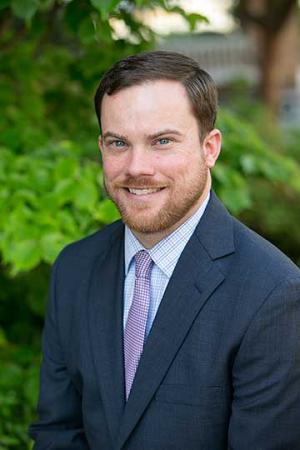
The image of the beach environment displays its givens: sand, sea, sky, dunes, plants, even the unseen particles in the air. The image of the boardwalk and “private property” sign shows a (passable) boundary onto which one can walk to the beach. It provides narrow, bounded access to a more open, free beach space. In times of change, the academic dean must understand the givens and the boundaries of theological education. Givens are the physical (temporal) and ontological realities that give boundary (like the narrow boardwalk) and freedom (like the open beach) to the work of the dean. As deans of theological schools, theological givens ought to be primary. As the beach becomes something else without sand, sea, and sky, the theological school becomes something else without a certain set of theological givens, and their relationship to other realities. Theological convictions and commitments rooted in texts and traditions, and how they cohere, serve as the sand, sea, and sky of the theological school environment. Other givens––cultural, social, institutional, etc.––will inform each dean’s context. The theological givens, I think, order and prioritize the other givens. The dean must know and value the givens in order to understand and carry out her role as an academic leader. Boundaries show the dean the context and scope of her work. They also indicate lines that either ought not or should be crossed. At times, the dean must help faculty, staff, and students flourish within a certain boundary, whether institutional, cultural, social or others. Other times, the dean must help faculty, staff, and students break through boundaries such as an antiquated and disparate curriculum. Curriculum revision offers one example where the academic dean leads the school to define new boundaries. These new academic boundaries will resonate if they reflect the givens of the school, like the boardwalk “fits” the beach environment because of how it helps us access and enjoy the beach. Academic leadership necessitates clear vision and creative discovery of the proper path for the people of the theological school. The givens and the boundaries of the school give the dean a context and lenses for that vision. When changes to theological education come, as they always have, a clear vision enables the dean to see his or her way forward so that the faculty, students, staff, and other constituents of the school may confidently follow, even if the future is unclear.